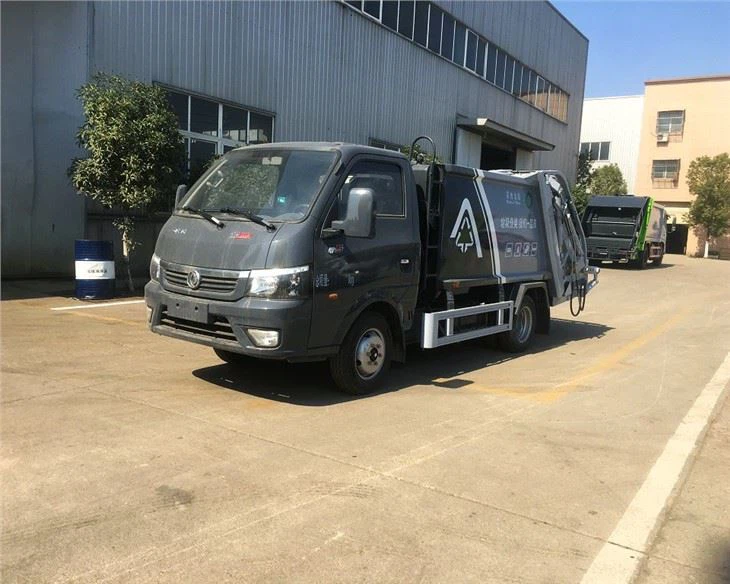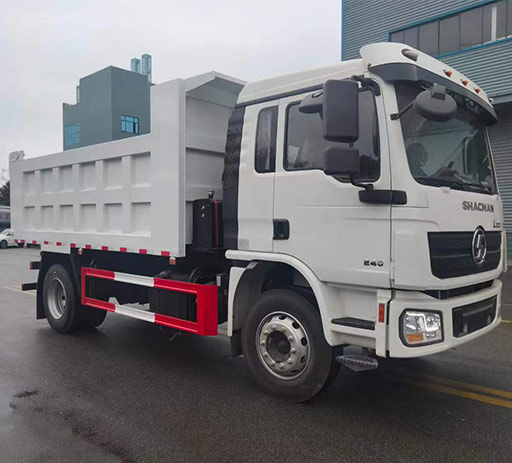Understanding Garbage Trucks: Insights into Twenty Essential Models

Garbage trucks play a crucial role in maintaining the cleanliness and hygiene of our communities. These vehicles are designed to collect waste efficiently and transport it to landfills or recycling centers. In this article, we will explore the various types of garbage trucks, highlighting twenty specific models, their features, operational efficiencies, and practical tips for municipalities and waste management companies.
Table of Contents
- What Are Garbage Trucks?
- Types of Garbage Trucks
- Twenty Garbage Trucks to Consider
- Operational Efficiency of Garbage Trucks
- Maintenance Tips for Garbage Trucks
- Safety Standards for Garbage Trucks
- The Future of Garbage Trucks
- Conclusion
- Frequently Asked Questions
What Are Garbage Trucks?
Garbage trucks are specialized vehicles designed for collecting waste and transporting it to disposal sites. They come in various shapes and sizes, each tailored for specific types of waste management, including residential, commercial, and industrial waste. Understanding the operation and types of garbage trucks is essential for effective waste management.
Types of Garbage Trucks
Garbage trucks can be categorized into several types based on their design and functionality. Each type serves different waste collection needs:
Front-Load Garbage Trucks
Front-loaders are easily identifiable by their large front compartment and hydraulic arms. These trucks are typically used for commercial waste collection, where users can deposit bins into the truck from the front.
Rear-Load Garbage Trucks
Rear-loaders have a large opening at the back for manual loading of waste. These trucks are common in residential areas where collection crews collect garbage and recyclables.
Side-Load Garbage Trucks
Side-loaders are equipped with mechanical arms that allow for automated collection of bins from the side. This type reduces labor costs and enhances operational efficiency.
Compaction Garbage Trucks
These trucks are designed to compress waste within their compartments, allowing for increased capacity and reduced trips to the landfill.
Roll-Off Trucks
Roll-off trucks transport large containers for construction debris or bulky items. The truck’s bed can be tilted to allow the container to roll off easily.
Vacuum Trucks
Vacuum trucks are specialized for cleaning liquid waste or sludge. They are commonly used for industrial applications as well as in municipal services.
Twenty Garbage Trucks to Consider
| Truck Model | Type | Key Features | Best For |
|---|---|---|---|
| Freightliner M2 106 | Rear-Load | Durable, customizable, high payload capacity | Residential areas |
| Peterbilt 520 | Front-Load | Excellent maneuverability, fuel efficiency | Commercial routes |
| International 4300 | Side-Load | Automated loading, advanced safety features | Suburban waste collection |
| Kenworth T370 | Rear-Load | Robust performance, spacious cab | Residential and commercial |
| MAC 6×4 | Compaction | High compaction ratios, reliable | Landfill operations |
| Isuzu NPR | Rear-Load | Compact size, easy navigation | Narrow streets |
| Volvo FE | Side-Load | Innovative design, operational efficiency | Urban collection |
| Hino 338 | Rear-Load | High payload, ergonomic design | Municipal waste management |
| Ford F-750 | Front-Load | Durable, high visibility | Commercial contracts |
| GMC W5500 | Side-Load | Versatile design, reliable performance | City routes |
| Ram 5500 | Rear-Load | Powerful engine, good towing capacity | Construction site cleanup |
| Western Star 4700 | Compaction | Superior stability, high payload | Heavy-duty operations |
| Mercedes Benz Econic | Side-Load | Eco-friendly, low floor for easy access | Urban waste disposal |
| Chevrolet 6500 | Rear-Load | Sturdy construction, great visibility | Residential areas |
| International MV Series | Front-Load | Great fuel efficiency, customizable configurations | All-purpose collection |
| Workhorse W42 | Rear-Load | Low operating costs, easy repairs | Small-town waste management |
| Scania P-Series | Side-Load | High performance, eco-friendly options | Heavy urban environments |
| Lightweight X-Series | Compaction | Innovative lightweight design, efficient | Short-haul waste collection |
| Autocar ACX | Rear-Load | Superior durability, flexible configurations | Long-term waste contracts |
| Ram 5500 Chassis | Vacuum | Highly maneuverable, reliable for liquid waste | Industrial applications |
Operational Efficiency of Garbage Trucks

Operational efficiency in garbage trucks is vital for effective waste management. The choice of garbage truck influences how quickly and effectively waste can be collected and transported. Here are key factors impacting operational efficiency:
Route Optimization
Utilizing GPS technology for route optimization can significantly reduce fuel consumption and time spent on the road, leading to overall cost savings.

Vehicle Maintenance
Regular maintenance ensures garbage trucks operate efficiently. This includes timely oil changes, brake checks, and tire rotations to prevent breakdowns.
Driver Training
Investing in driver training can enhance operational efficiency by ensuring that drivers are knowledgeable about safe and effective driving practices.
Waste Sorting Technology
Implementing onboard waste sorting technology can streamline the collection process, allowing for quicker identification of recyclables and reducing landfill waste.
Maintenance Tips for Garbage Trucks
Proper maintenance prolongs the life of garbage trucks and ensures safe operation. Here are practical tips:
Regular Inspections
Schedule regular inspections to identify potential issues before they become problematic. Focus on crucial components like brakes, lights, and hydraulic systems.
Fluid Levels Monitoring
Regularly check and top up engine oil, coolant, and hydraulic fluids to prevent mechanical failures.
Tire Maintenance

Inspect tires for wear and ensure they are inflated to recommended levels to promote fuel efficiency and safety.
Training for Mechanics
Keeping your maintenance personnel trained on the latest techniques and technologies in vehicle maintenance is essential for effective upkeep.
Safety Standards for Garbage Trucks
Safety is paramount in waste management operations. Garbage trucks must meet specific safety standards set by governmental and local agencies:
Visibility Features
Trucks must be equipped with proper lighting, reflective tape, and other visibility features to ensure they are noticeable, especially during nighttime operations.
Brake Systems
Effective braking systems are necessary to prevent accidents. Regular checks and compliance with safety standards are crucial.
Driver Safety Training
Providing safety training for drivers ensures they are prepared to respond effectively in emergencies.
Public Awareness Programs
Communicating with the public about garbage collection schedules and safety measures can enhance community support and safety.
The Future of Garbage Trucks
As technology advances, so too does the design and functionality of garbage trucks. The following trends are shaping the future of waste collection vehicles:
Electric and Hybrid Models
Many municipalities are investing in electric or hybrid garbage trucks to reduce emissions and improve sustainability. This trend is expected to grow as battery technology evolves.
Automated Systems
Automated waste collection using robotic arms is gaining popularity, making the collection process safer and reducing labor costs.
Smart Technology Integration
Smart sensors and IoT technology will allow garbage trucks to communicate in real-time, facilitating efficient routing and waste tracking.
Enhanced Recycling Capabilities
Future garbage trucks will likely have more advanced waste sorting capabilities, making recycling more efficient and reducing landfill contributions.
Frequently Asked Questions
How do garbage trucks reduce their environmental impact?
Garbage trucks reduce environmental impact through improved fuel efficiency, use of alternative fuel sources, and incorporation of recycling technologies that sort waste at the source.
What is the average lifespan of a garbage truck?
The average lifespan of a garbage truck is typically between 10 to 15 years, depending on usage, maintenance, and the type of truck.
How often should garbage trucks be maintained?
Garbage trucks should be maintained regularly, with inspections performed every 1000 miles and more in-depth checks scheduled every six months or yearly, depending on usage intensity.
What types of waste can garbage trucks collect?
Garbage trucks are designed to collect various waste types, including household trash, recyclables, yard waste, and industrial refuse, depending on their type and configuration.
Are there regulations governing garbage truck operations?
Yes, garbage truck operations are subject to numerous regulations concerning safety, emissions, and waste management practices, which vary by region and country.
What advancements are expected in garbage truck design?
Future advancements may include fully electric models, intelligent routing algorithms, automated collection systems, and enhanced waste sorting technologies to improve recycling rates.
